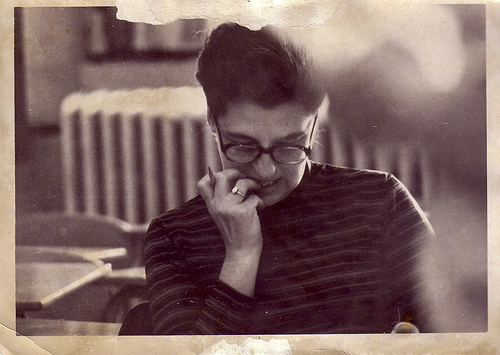 Many college education (both music and otherwise) classes require students to write teaching philosophies. How many of you keep a teaching philosophy posted on your studio website or printed in studio materials? Have you updated it at all since your college days? And those of you who didn’t write one for college – have you considered writing one yourself?
Many college education (both music and otherwise) classes require students to write teaching philosophies. How many of you keep a teaching philosophy posted on your studio website or printed in studio materials? Have you updated it at all since your college days? And those of you who didn’t write one for college – have you considered writing one yourself?
Let me give you some reasons why you if you don’t have a written teaching philosophy, you should write one — and if you are using the one you wrote in college, you should consider updating it regularly.
What is a teaching philosophy?
Every teacher has a teaching philosophy, written or otherwise. Teaching philosophies are about your view on teaching, learning, goals, methods, styles, the learning atmosphere, relationship with the student, and more. Putting your teaching philosophy on paper can allow you to reflect upon and crystalize your goals as a teacher and then improve your methods for reaching those goals at the practical level. As such, the statement of teaching philosophy becomes much more than a way to communicate your teaching values and methods to potential students and parents, important as that is. It becomes an opportunity for the teacher to reflect, ponder, and become refocused on one’s goals as a teacher — and, on the practical level, to adjust one’s methods of teaching in order to align with these goals.
But why should I make an effort to update it regularly?
In college, many of us had very little idea what our teaching philosophies really were yet, since we hadn’t done very much teaching yet at that point. The teaching philosophy should reflect the evolution of your teaching as you change and develop each year. Your methods and goals are changing, and your teaching philosophy should reflect it. Over the course of some years, your teaching philosophy may change drastically, while other years, it might not change much at all. That’s okay. The point is, keep it current.
If you don’t have a written teaching philosophy yet, try writing one. You might not be happy with your results at first, but over time as you revise it to accurately reflect your teaching values and methods, it will become something valuable to both yourself and your students. It helps give focus for both yourself and your students.
And so I challenge you to update your teaching philosophy once a year – perhaps in January as you think ahead to a new year, or perhaps during the summer as you prepare for the beginning of the next academic year.
Okay, I’ll write it!
Although the teaching philosophy should contain broad statements about your over-arching goals as a teacher, it should ideally also contain specific examples for how you live out your philosophy in your teaching. Your written teaching philosophy does not have to be long. Below are some questions to get you started – but certainly do not feel as if you should answer all of these questions in your teaching philosophy:
- What is the most important thing you’d like your students to walk away with after 1 year or 10 years of lessons?
- What makes you different from other teachers?
- What goals do you have for your students?
- Are there certain methods or books you use to get your students to their goals?
- How do you motivate your students?
- What expectations do you have for your students?
- What is the role of the parent in piano lessons?
- What ages do you teach? Or which ages do you specialize in teaching?
- What subjects or areas do you actively teach and consider a necessary part of learning the piano? (e.g., theory, history, technique, improvisation, composition, playing by ear, jazz, etc.)
- What kind of teaching environment or atmosphere do you maintain in your studio?
For further reading:
- Articulating Your Philosophy of Teaching | an article by the University of Texas at El Paso.
- Getting Started on Your Teaching Philosophy | use the links on the left of this article by University of Minnesota to browse through this step-by-step guide to writing your own teaching philosophy.
Photo Credit: kevindooley | CC 2.0



Great post! I think that writing a teaching philosophy is an excellent way to to focus on and articulate your goals as a teacher. It’s a wonderful way to let students/prospective students know what your goals are, and I also think it makes you much more professional.
Here is my phillosphy: http://jenniferbosterpiano.blogspot.com/p/teaching-philosophy.html